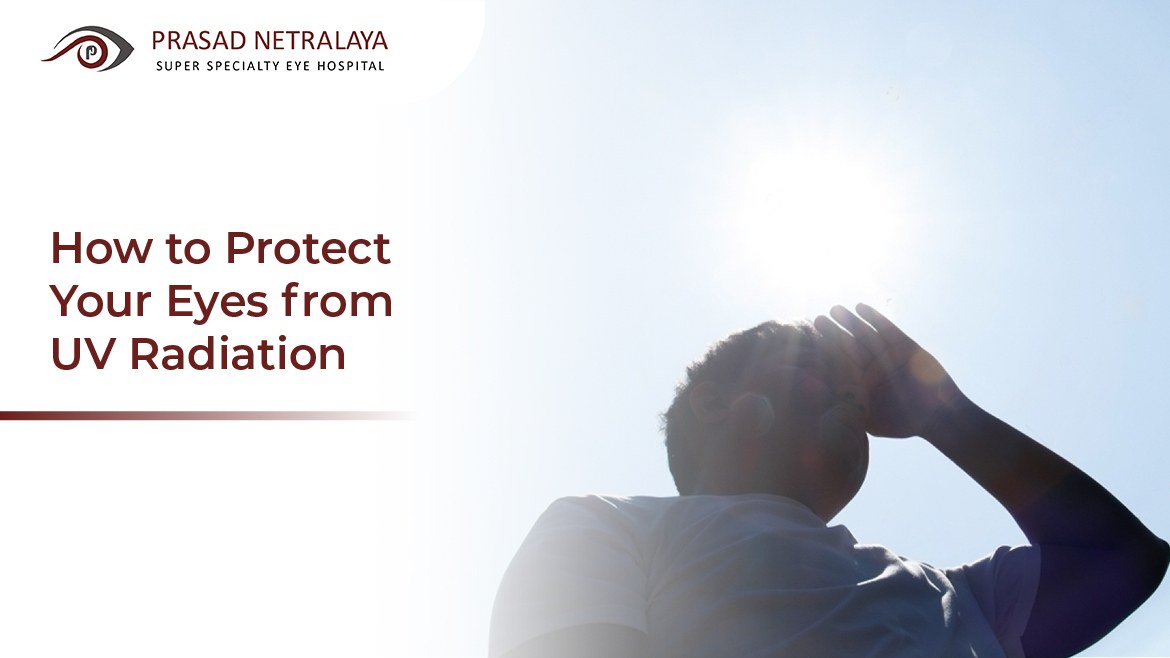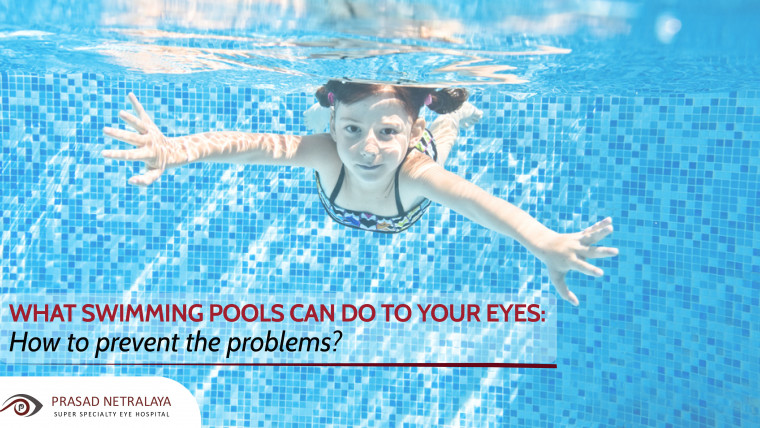Generally, people are aware of the repercussions long exposure to the sun has on the skin. But how aware are they of the effect of UV radiation on the eyes?
Did you know that prolonged exposure to UV rays affects your eyes, making them susceptible to eye irritation, developing cataracts, and eventually loss of sight?
So, to help you stay informed, here’s all you need to know about UV radiation, the effect of UV rays on the eyes, and how to protect your eyes from UV light.
Table of Contents
What Is UV Radiation?
Ultraviolet rays or UV rays are electromagnetic radiation in sunlight. They can also be produced artificially by electric arcs and specialized lights, such as mercury-vapor lamps used for various purposes.
Ultraviolet (UV) radiation covers the wavelength range of 10–400 nm, which is higher in frequency than visible light.
Types of UV Radiation
UV radiation is classified into three main types based on their wavelengths:
- Ultraviolet A (UVA)
- Ultraviolet B (UVB)
- Ultraviolet C (UVC)
Of the three kinds, UVC is completely blocked by the ozone layer, while UVA and some of UVB penetrate through the atmosphere and are more likely to damage your eyes.
The only way you can be exposed to UVC and some of UVB radiation is from artificial sources.
Also Read : Does Looking At A Solar Eclipse Cause Blindness?
Four Factors Affecting UV Exposure
The risks of exposure to UV radiation depend on the following factors.
1. Geography
Geographical location contributes to how vulnerable one is to UV exposure. Because the position of the sun is directly over the equator, UV rays are harsh and penetrate easily into this zone of the Earth.
2. Altitude
Radiation levels increase up to 10% for every 1000M rise in altitude as there are fewer radiation-absorbing substances in the atmosphere to filter UV rays.
3. Time of Day
Irrespective of time and season, UV rays can penetrate through clouds and rain easily. When the sun gravitates towards its highest point, from 10 AM to 4 PM, UV rays are more intense and damaging.
4. Reflection
Ground reflection sources like grass, soil, and water reflect less than 10% of incident UV radiation. Sand reflects about 15% and seafoam about 25%. Fresh snow, a particularly good reflector, almost doubles a person’s UV exposure.
Top 5 Eye-Problems UV Radiation Causes
Overall, Effect of UV Radiation on the Eyes, gradually leading to major sight problems such as cataracts, eye growths like pterygium, age-related macular degeneration, photokeratitis, and even eye cancer.
1. Cataracts
Over time, a person’s age, health condition, and years of constant exposure to the sun contribute to cataracts — a condition where the eyes’ natural lens becomes cloudy, leading to blurry vision.
2. Macular Degeneration
Macular degeneration is a change or damage to the macula, light-sensitive retinal tissue responsible for seeing things in your direct line of vision. This condition leads to gradual spotting of the eye and a blurred central line of vision.
3. Pterygium
Also called Surfer’s Eyes, pterygium is a growth of fleshy tissue that covers the cornea, causing distortion or loss of vision. Surfers, farmers, or people who work under the midday sun, in the sea, and in open waters are more prone to getting pterygium.
4. Photokeratitis
Photokeratitis occurs as a result of acute exposure to UVR through directly looking at the sun during an eclipse, ground reflection, snow (snow blindness), or from man-made sources such as welding arcs, tanning lamps, lasers, etc.
5. Cancer
UV light is also associated with skin cancers including squamous or basal cell carcinomas and cutaneous melanoma. Effects of UV radiation on the eyes also induce wrinkles, hyper-pigmentation, loss of elasticity, etc.
How To Protect Your Eyes from UV Radiation?
Too much exposure to the sun can be harmful to your eyes, but avoiding the sun altogether isn’t recommended either.
Rather, take these necessary precautions before stepping out in the sun to protect your eyes from UV light.
1. Wear Protective Gear
Wear sunglasses that offer 100% protection from UV rays like UV400. Pick a pair of sunglasses that have a large frame, wraparound protection, polarized lenses, or an anti-reflective AR coating that protects your eyes from UV rays.
When outdoors, always make sure you wear a wide-brimmed hat that offers good protection to your eyes from the sun.
2. Limit Sun Exposure Midday
From 10 am to 4 pm, the sun’s position makes it easy for its rays to easily penetrate through the atmosphere. Hence, it is recommended to limit sun exposure during this time.
3. Protect and Prevent
Stay cautious near reflective areas and avoid tanning in general, as both cause damage to the eyes.
Before stepping out, make sure you carry broad spectrum SPF 30+ sunscreen and apply it generously on the face and eye area to protect your eyes from harmful UV radiation.
How To Manage the Effect of UV Radiation on the Eyes?
Educate yourself about the harmful effects UV rays have on the eyes and overall health in general.
Consult an ophthalmologist every year to help treat any underlying conditions and track your eye health.
A little natural sunlight every day helps in regulating the body’s circadian rhythm and the production of vitamin D.
To learn more about how to protect your eyes from the effects of UV radiation, connect with Prasad Netralaya Eye Hospital through our website and book a consultation today.
Dr. Vikram Jain, M.S. had his medical training (MBBS) from Kasturba Medical College, Mangalore, India. He did his master’s in Ophthalmic surgery from Kasturba Medical College, Manipal. He currently manages the Glaucoma department of Prasad Netralaya hospital.



